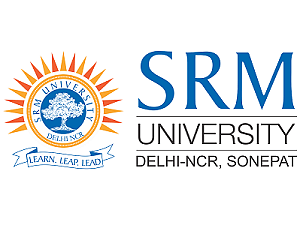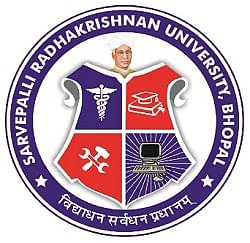Introduction about Ph.D. in Biophysics
Ph.D. in Biophysics at top college is a specialized doctoral program that explores the intersection of
biology and physics, focusing on understanding biological processes through the
principles of physics. This interdisciplinary field applies quantitative and
analytical methods from physics to study complex biological systems at the
molecular, cellular, and organismal levels. By integrating principles from both
disciplines, biophysicists aim to uncover the fundamental mechanisms underlying
biological phenomena and develop new technologies and treatments for various
diseases.
What is admission process for Ph.D. in Biophysics ?
The admission process for Ph.D. in Biophysics may vary depending on the specific program
and institution. However, here is a general overview of the typical admission
process:
Research and
Identify Programs: Research
different Ph.D. programs in Biophysics and identify the ones that align with
your research interests and career goals. Consider factors such as faculty
expertise, research facilities, and program reputation.
Review Eligibility
Requirements: Check the
eligibility criteria for each program, including academic qualifications,
standardized test scores (if required), and any specific prerequisites.
Prepare Application
Materials: Gather all the
necessary application materials, which typically include:
Official
transcripts from all previous academic institutions.
Letters of
recommendation (usually 2-3) from academic or professional references who can
attest to your research abilities and academic potential.
A statement of
purpose or personal statement outlining your research interests, career goals,
and reasons for pursuing a Ph.D. in Biophysics. This document should
demonstrate your passion for the field and your alignment with the program's
research focus.
Standardized test
scores (e.g., GRE, if required).
Any additional
documents or writing samples requested by the program.
Submit Online
Application: Complete and
submit the online application form provided by the institution or program. Pay
close attention to deadlines, as late applications may not be considered.
Application Fee: Some programs require payment of an
application fee. Make sure to submit the fee according to the program's
instructions.
Standardized Tests: If required, schedule and take any
standardized tests (e.g., GRE) well in advance of application deadlines. Make
sure to send your scores directly to the institutions where you are applying.
Interview (if
applicable): Some programs
may require an interview as part of the admissions process. If selected for an
interview, be prepared to discuss your research background, interests, and
career aspirations with faculty members or admissions committee members.
Review Process: Once all application materials are
submitted, they will be reviewed by the admissions committee. Committee members
will assess your academic qualifications, research experience, letters of
recommendation, statement of purpose, and any other relevant factors.
Admission Decision: After reviewing applications at top 10 college in India , the
admissions committee will make decisions on which candidates to admit to the
program. Admitted students will receive an offer of admission, typically
followed by instructions on how to accept or decline the offer.
Enrollment: If you receive an offer of admission and
choose to accept it, follow the enrollment procedures provided by the
institution. This may include submitting additional documentation, paying
enrollment deposits, and registering for classes.
It's important to
carefully review the specific application requirements and deadlines for each
program you are applying to and to ensure that all materials are submitted
correctly and on time. Additionally, reaching out to faculty members or program
coordinators with any questions you may have can be helpful during the
application process.
What is eligibility criteria for Ph.D. in
Biophysics?
Educational
Qualifications: Candidates
should have a relevant master's degree or equivalent in biophysics, physics,
biology, chemistry, biochemistry, biomedical engineering, or a related field.
Some programs may accept students with a bachelor's degree in exceptional
cases, especially if they ++++++++++++++++++++++++++++++++have extensive research experience.
Academic
Performance: Applicants are
generally expected to have a strong academic record, typically with a minimum
GPA requirement, often ranging from 3.0 to 3.5 on a 4.0 scale.
Standardized Test
Scores: Some programs may
require applicants to submit scores from standardized tests such as the
Graduate Record Examination (GRE), although this requirement is becoming less
common. International applicants may also need to provide scores from English
proficiency tests such as the TOEFL or IELTS.
Research Experience: Strong research experience, demonstrated
through previous research projects, internships, publications, or
presentations, is often highly valued. Applicants should highlight their
research accomplishments and skills in their application materials.
Letters of
Recommendation: Most
programs require letters of recommendation from academic or professional
references who can attest to the applicant's research abilities, academic
performance, and potential for success in a Ph.D. program.
Statement of
Purpose: Applicants are
typically required to submit a statement of purpose or personal statement
outlining their research interests, career goals, and reasons for pursuing a
Ph.D. in Biophysics. This document should demonstrate the applicant's passion
for the field and their alignment with the program's research focus.
Interview (if
applicable): Some programs
may require applicants to participate in an interview as part of the admissions
process. During the interview, applicants may be asked about their research
experience, interests, and career aspirations.
It's important for prospective students at best 5 university in India to carefully review the specific eligibility criteria and application requirements of each Ph.D. program in Biophysics to which they plan to apply, as requirements may vary between institutions.
What is syllabus for Ph.D. in Biophysics?
The syllabus for Ph.D. in Biophysics may vary depending on the specific program and institution.
However, here is a general overview of the topics and areas of study commonly
included in the syllabus:
Core Courses:
Advanced
Biophysical Methods:
Exploration of advanced experimental techniques used in biophysics research,
including spectroscopy, microscopy, X-ray crystallography, NMR spectroscopy,
and single-molecule techniques.
Biophysical
Chemistry: Study of the
physical principles underlying biological processes, including thermodynamics,
kinetics, molecular interactions, and molecular dynamics simulations.
Cell Biophysics: Investigation of the mechanical
properties, dynamics, and signaling processes within living cells, including
membrane biophysics, cytoskeletal mechanics, and cell motility.
Structural Biology: Examination of the three-dimensional
structure of biological macromolecules such as proteins, nucleic acids, and
lipids, using techniques such as X-ray crystallography, NMR spectroscopy, and
cryo-electron microscopy.
Computational
Biophysics: Introduction to
computational methods and modeling approaches used to simulate and analyze
biological systems, including molecular dynamics simulations, quantum mechanics
calculations, and bioinformatics tools.
Biological
Macromolecules: In-depth
study of the structure, function, and dynamics of proteins, nucleic acids, and
lipids, with a focus on understanding their roles in biological processes and
disease mechanisms.
Elective Courses (Examples):
Biophysical Imaging: Advanced imaging techniques for
visualizing biological structures and dynamics, including fluorescence
microscopy, confocal microscopy, super-resolution microscopy, and atomic force
microscopy.
Biomechanics: Study of the mechanical properties of
biological tissues, cells, and biomolecules, including techniques such as
rheology, traction force microscopy, and microfluidics.
Systems Biology: Application of mathematical modeling and
computational approaches to study complex biological systems, including gene
regulatory networks, signaling pathways, and metabolic networks.
Medical Biophysics: Exploration of biophysical principles and
techniques applied to medical diagnostics, imaging, and therapy, including
medical imaging modalities, biomarker detection, and drug delivery systems.
Quantitative
Biology: Integration of
quantitative approaches from physics, mathematics, and engineering to address
biological questions, including topics such as stochastic processes, pattern
formation, and morphogenesis.
Research Seminars and Workshops:
Participation in
seminars, journal clubs, and research conferences to discuss current topics and
recent advancements in biophysics research.
Workshops and
training sessions on research methodologies, data analysis techniques, and
scientific communication.
Dissertation Research:
Independent
research project under the guidance of a faculty advisor, focused on addressing
a specific research question in biophysics.
Development of a research proposal, data collection, analysis, and interpretation at best Ph.D. in Biophysics colleges in India.












